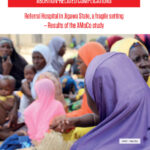
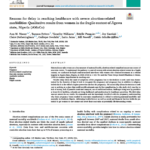
This article describes the pathways to care for women with severe abortion-related near miss events in a fragile context.
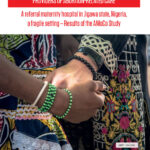
This evidence brief from the AMoCo study presents selected results of a knowledge, attitudes, practices, and behaviors (KAPB) survey given to health professionals in Jahun, Nigeria providing abortion-related care.
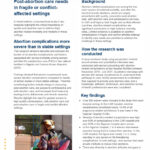
This research snapshot summarizes methods, key findings, and implications of the Abortion-related Morbidity and Mortality in Conflict-affected and Fragile Settings study conducted in Jahun, Nigeria and Bangui, Central African Republic.
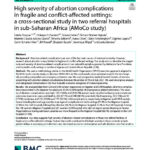
This study describes the magnitude and severity of abortion-related complications in two referral hospitals located in two different types of fragile and conflict-affected settings and supported by Médecins Sans Frontières.
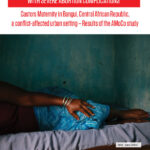
This evidence brief summarizes key findings from the qualitative component of the AMoCo study, which aims to describe the access to care and treatment of women and girls hospitalized in Castors Maternity Hospital in Bangui for potentially life-threatening and near-miss abortion complications such as severe haemorrhage, severe sepsis, and uterine and intra-abdominal perforation.
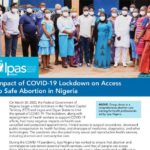
Sexual and reproductive health care is often neglected or difficult to access during a crisis, and this can in turn drive more people to seek unsafe abortions that risk their health and lives. For these reasons, Ipas Nigeria conducted a study to understand the impact of Nigeria’s COVID-19 lockdowns on access to safe abortion. Overall, study findings show that the lockdowns exacerbated the pandemic’s impact on women’s access to safe abortion services.
This paper reports the results of an intervention with 3,471 abortion providers in India, Nepal and Nigeria. Following abortion care training, providers received in-person visits and virtual contacts by a clinical and programmatic support team for a 12-month period. The intervention also included technical assistance to and upgrades in facilities where the providers worked.
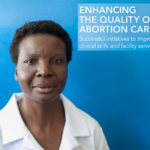
This report looks at initiatives in four countries—Nigeria, Nepal, Ghana and Zambia—where Ipas is working with governments, communities and other partners to provide clinical and programmatic support to providers and health-care facilities.
Medical students’ limited opportunities to train in abortion procedures are a major barrier to care. But as bad as the situation is in the United States for medical students, it’s actually much worse in many international settings.
Contraception is an essential element of high-quality abortion care. However, women seeking abortion often leave health facilities without receiving contraceptive counselling or methods, increasing their risk of unintended pregnancy. This paper describes contraceptive uptake in 319,385 women seeking abortion in 2,326 public-sector health facilities in eight African and Asian countries. Ministries of Health integrated contraceptive and abortion services, with technical assistance from Ipas. Overall, postabortion contraceptive uptake was 73 percent. The findings demonstrate high contraceptive uptake when it is delivered at the time of the abortion, a wide range of contraceptive commodities is available, and ongoing monitoring of services occurs.
Unsafe abortion is a significant contributor to maternal mortality in Nigeria, and treatment of postabortion complications drains public healthcare resources. Provider estimates of medications, supplies, and staff time spent in 17 public hospitals were used to estimate the per-case and annual costs of postabortion care (PAC) provision in Ogun and Lagos states and the Federal Capital Territory.
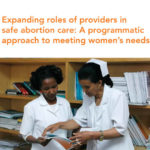
This brief examines the key results from expanding abortion service provision to midlevel providers in 10 Ipas country programs throughout Asia and Africa, including a global analysis of programmatic data from all 10 countries and two case studies (Ethiopia and Bangladesh).
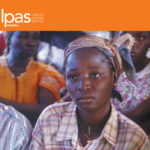
This fact sheet looks at the policy implications of a national abortion incidence study showing that, even though abortion is heavily restricted throughout Nigeria, 1.25 million Nigerian women had an abortion in 2012. The study found that almost all of the abortions were performed clandestinely, many by unskilled providers or using unsafe methods or both.

